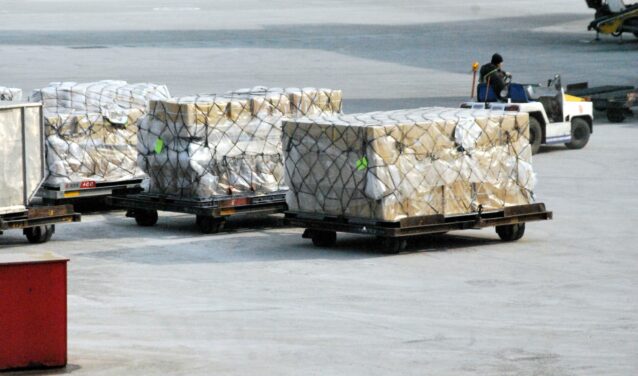Why choose bespoke air freight?
Chartering an aircraft allows you to avoid the restrictions of international airlines for the transport of goods. AEROAFFAIRES allows you to transport freight immediately, at the time and date you require.
Do you need to plan a particular freight shipment? Are you unsure about the type of transportation for dangerous goods? What choice should you make between shipping by sea or by air?
In addition to providing air cab services, AEROAFFAIRES offers a wide range of cargo aircraft ready for rental: Nantes, Madagascar, Vietnam, Cameroon, Reunion Island or Mauritius, a worldwide network is available to you.
A freight transport expert will advise you and find the best solutions to transport all your goods door-to-door, to their destination, with the greatest care and at the best price.
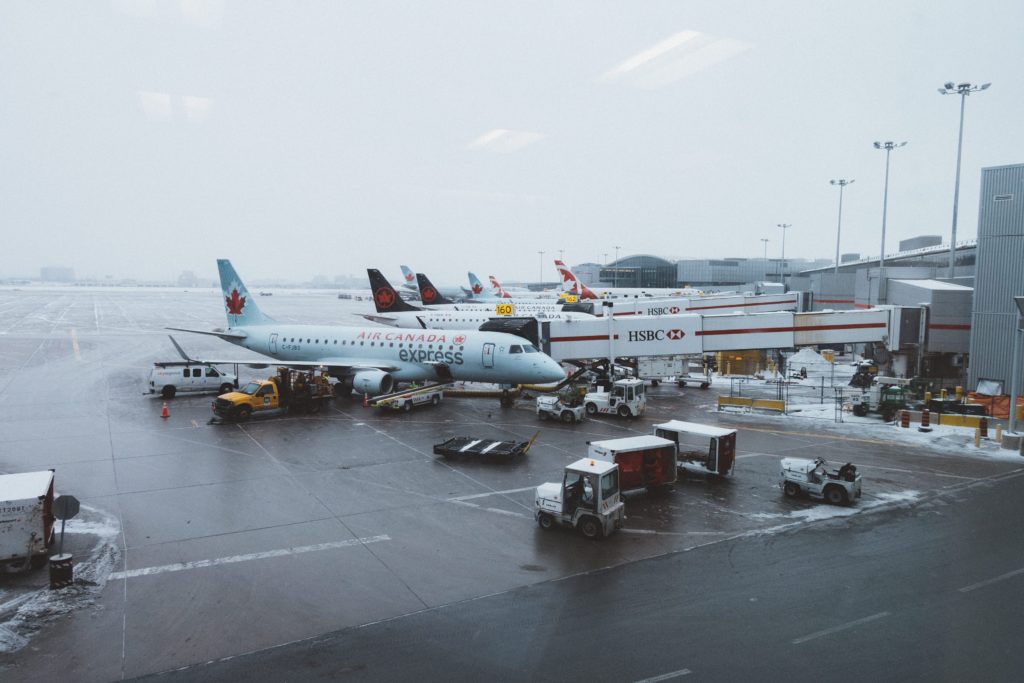
Proximity to the world, a multitude of destinations

While cargo airlines only serve a handful of airports, this private mode of transportation gives you access to airports that are as close as possible to the final recipient. In France, more than 90% of air freight is handled at Paris Charles-De-Gaulle International Airport, while regional airports are developing strong skills as logistics platforms. This is notably the case for Lyon Saint-Exupéry, Châteauroux-Centre and Paris-Vatry, which can handle freight 24/7.
More information
With no intermediate air transit, the time saved by a private cargo plane is invaluable. Choosing customized air freight is therefore preferable to other modes of transport such as road, rail or sea carriers.
Moreover, even though air freight traffic represents only 3% of the volume of goods in transit in the world, it nevertheless represents 45% of their value. Cargo planes allow for short and very secure transport of goods, which explains why 61.2 million tons of high-value freight moved through the air and airport structures in 2019.
Included services
In the same way as an airline company, and because accompanying you throughout this process is our priority, we make a point of offering a number of complementary services for each performance
Our services
- Handling of the aircraft: setting up the aircraft, starting it up, ground generators, pushing the aircraft back down, stairways and cleaning the aircraft’s toilets
- Loading and unloading of aircraft cargo (containers, pallets etc)
- Fixed shipping and delivery times
- Optional complementary transport insurance
- Catering
The airfreight logistics chain: the other players involved
For palletization, i.e. the organization of products by job, we will directly contact the handling company of the chosen airport.
Then, an Air Waybill (AWB) will have to be signed by the freight forwarder or the airline and given to the shipper before the freight is loaded. It is a kind of “ticket”, an international air transport contract between the carrier and the shipper.
Finally, the customs procedures are taken care of by the forwarder.
A CUSTOMIZED SOLUTION FOR EVERY NEED
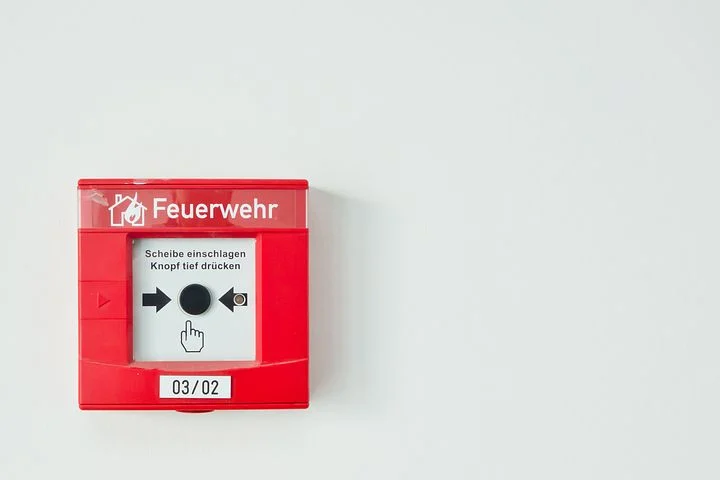
Urgent air freight solutions
AEROAFFAIRES is available 24/7 to provide you with emergency cargo chartering solutions. Unlike sea freight, which requires a longer delivery time, air freight allows shippers to process their requests quickly. We are ready to respond to all your transfer requests immediately:
- Documents to be handed over personally
- Machine parts for busy production lines
- Pharmaceutical products of first necessity
- Urgent shipments
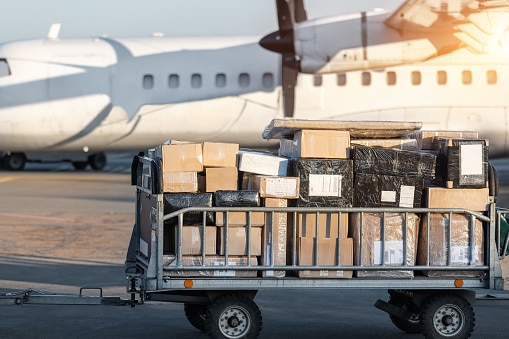
Transporting heavy and bulky goods by air
AEROAFFAIRES has a large fleet of cargo aircraft, including nose-loaders and aircraft with dedicated loading ramps. These large carriers are capable of transporting very heavy and bulky cargo such as wind turbine propellers, aircraft parts or production machinery.

Safe shipment of hazardous and classified products
If you need to transport delicate products, AEROAFFAIRES can find solutions adapted to your export needs.
Our specialist teams have in-depth knowledge of international regulations. We will find you the ideal aircraft approved for the transport of dangerous goods and materials and will do everything possible to ensure a very high level of safety during the transport of your products.

Tailor-made air freight for private customers: transporting high-value goods
Do you need to transport high-value goods?
AEROAFFAIRES offers aircraft dedicated to transporting personal effects such as precious metals, cars, jewelry, artworks, fashion collections, music equipment and sports cars.
We also take care of any transport of sensitive documents or secret transport.
Our team is fully dedicated to guarantee you the highest level of security for the transportation of your valuable goods.

Humanitarian help by air freight
Would you like to charter a cargo plane for humanitarian aid? AEROAFFAIRES can help you in difficult situations. Indeed, some parts of the world are facing crisis situations (wars, conflicts, natural disasters, etc.). Very often, these emergency situations require the chartering of goods necessary for the survival of individuals. It is therefore necessary to respond to the demand as quickly as possible, taking into account the logistics involved (airports sometimes difficult to access, etc.), which we are able to do.

Reach the most remote destinations with air freight
Is the location where your goods are to be sent isolated or difficult to access? AEROAFFAIRES’ experts are at your disposal to find the right aircraft for the area where it is to be sent, depending on the freight being transported. Sometimes regions are poorly served or particularly difficult to access (rugged terrain, short runways, etc.). We take care of obtaining the necessary documents to send your goods there with the best aircraft and the best crew there is.
Your request, our solution: customized air freight service
Because adaptability is our priority, we also take care of :
- Air ambulance
- Medical evacuations
- Removals
- Aerial work
- Animal transport
- Specialized transportation in the oil, gas and mining industries
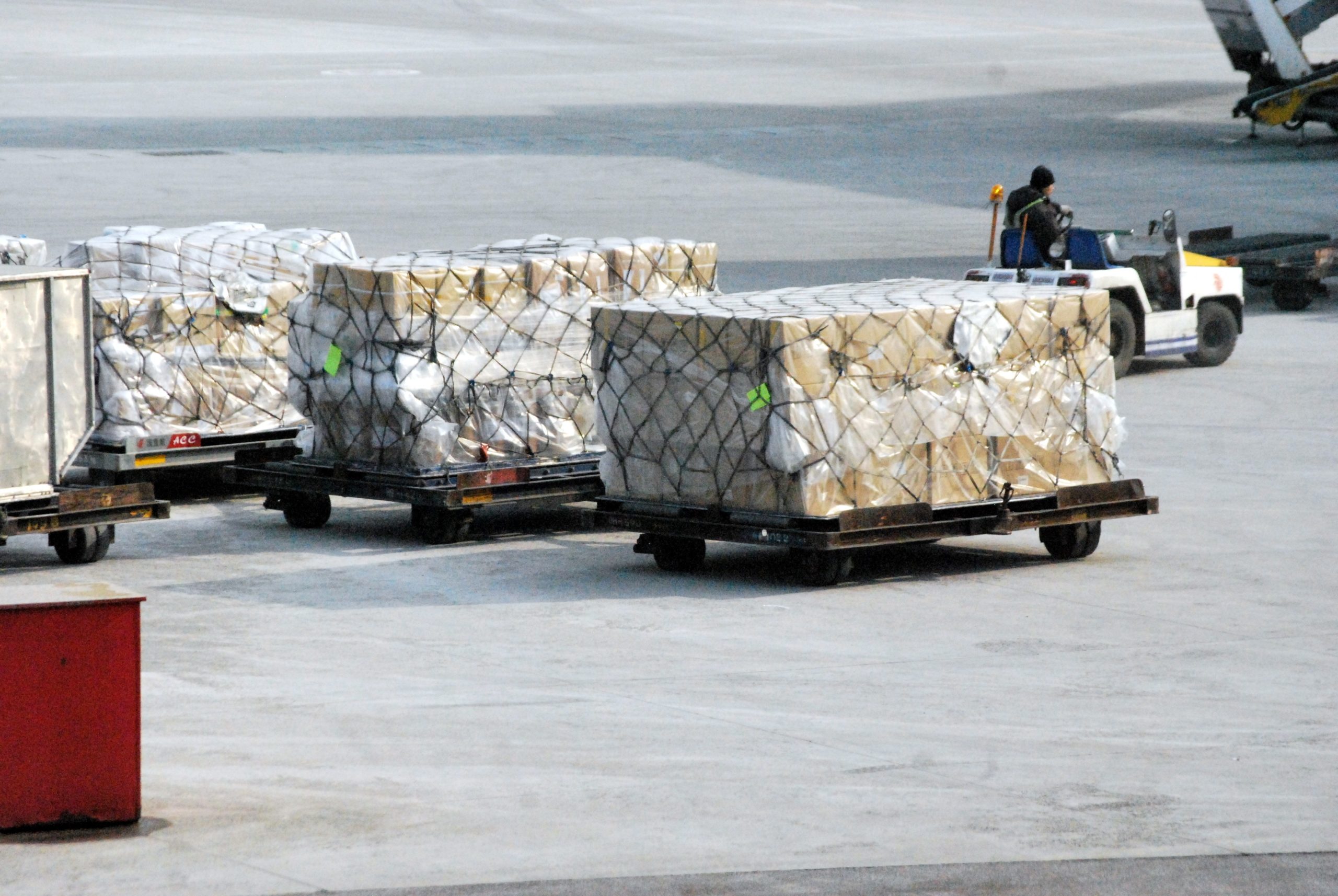
Air freight : why choose AEROAFFAIRES ?
AEROAFFAIRES has a technological system that allows us to instantly locate all cargo aircraft worldwide.
Our team is trained in air logistics procedures and freight services, and is familiar with international regulations for the routing and shipping of goods.
Available 24 hours a day, 7 days a week, our experts will assist you with all your urgent requests and find solutions at the best rates, just like a freight forwarder.
Send us your request on our online quote form at any time.
You can also contact us by phone at +33 (0)1 44 09 91 82 or by email at info@aeroaffaires.com
Our air freight fleet
AEROAFFAIRES has access to many types of international cargo aircraft. Here are some of them:
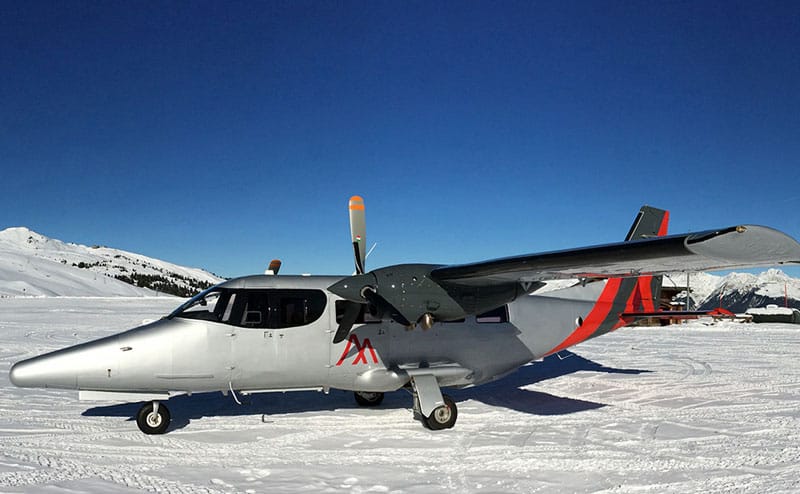
The Vulcanair Aviator TP 600 is a turboprop capable of taking off and landing on very short runways. It is one of the two aircraft authorized to land at the Courchevel altiport. Its cabin can be converted to accommodate cargo, it is 5.24 m long, 1.24 m high and 1 m wide.
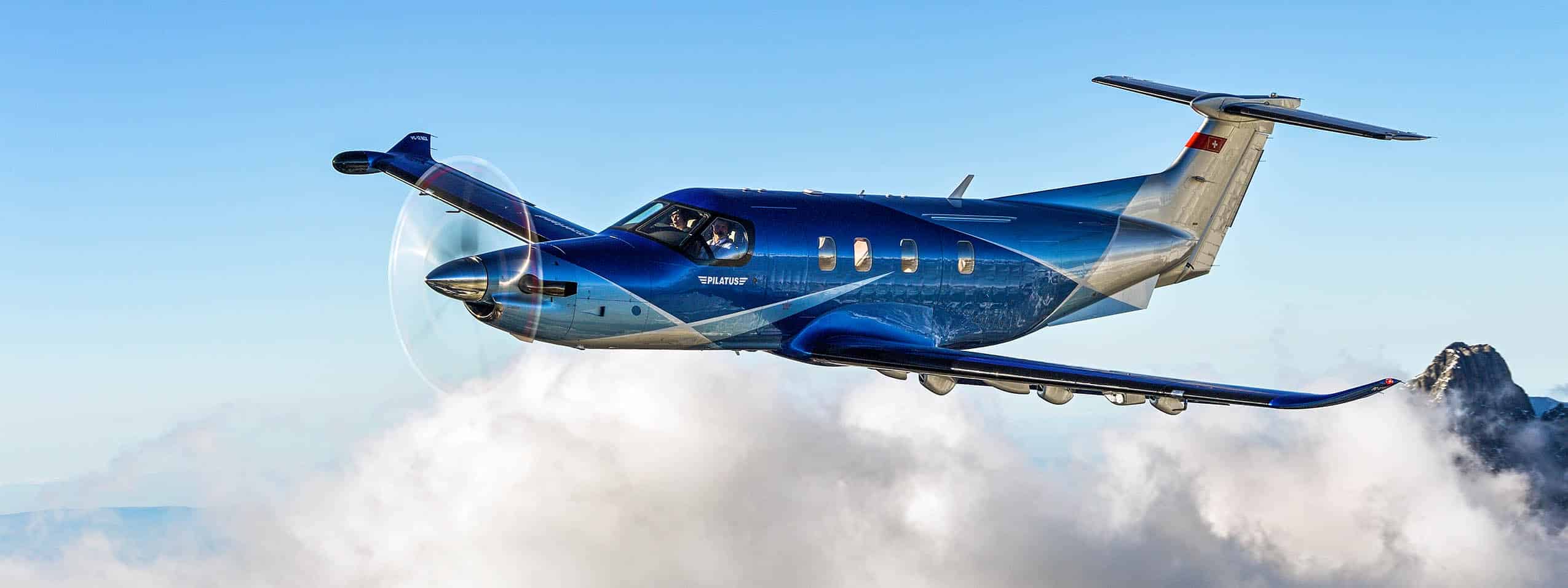
The Pilatus PC 12 is a single-engine propeller aircraft whose cabin can be converted to carry air freight. It has a large cargo door of 1.35 m in height and 1.32 m in width, an exceptional feature for this type of aircraft. Its cabin is 1,46 m height and 5,15 m length.
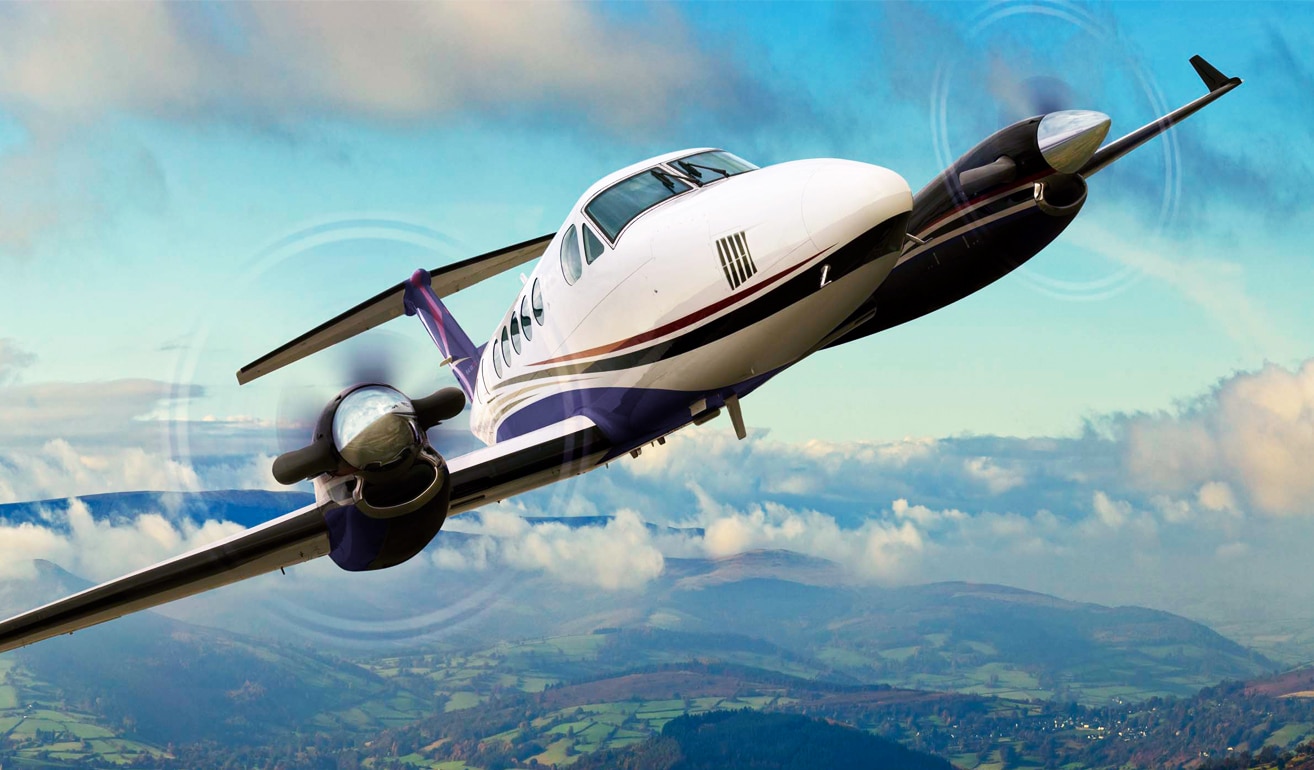
The Beech King Air 200 cargo version is a very small-capacity cargo aircraft, with a cargo door measuring 1.38 m high and 1.32 m wide, which allows it to carry goods. Its hold measures 1.24 m wide, 1.38 m high and 2.80 m long; it can accommodate up to 1.2 tons of cargo.
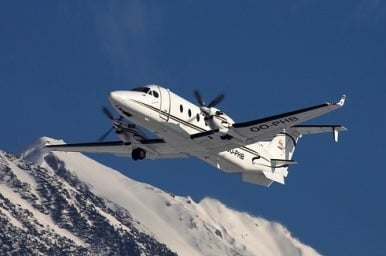
The Beech King Air 1900 cargo version is a small capacity cargo aircraft. Its cargo door is 1.45 m high and 1.32 m wide, allowing it to carry goods. Its cargo hold is 1.80 m high, 1.37 m wide and 7.70 m long; it can accommodate up to 2.1 tons of cargo.
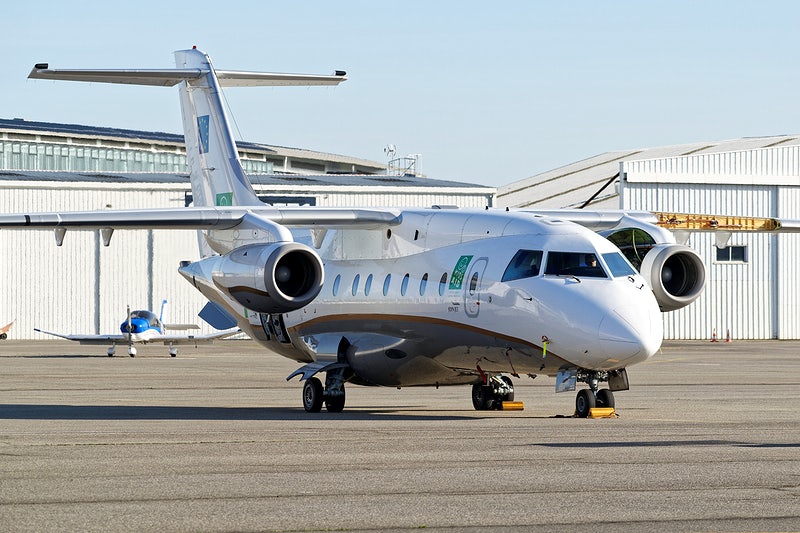
The Dornier 328 is a regional turboprop transport aircraft of which some models have been transformed into cargo version. Its cargo compartment is 10.35 m long, with a height of 1.90 m and a width of 2.20 m. With its high speed and excellent performance for landing on short runways, the Dornier 328 is ideal for regional freighters.
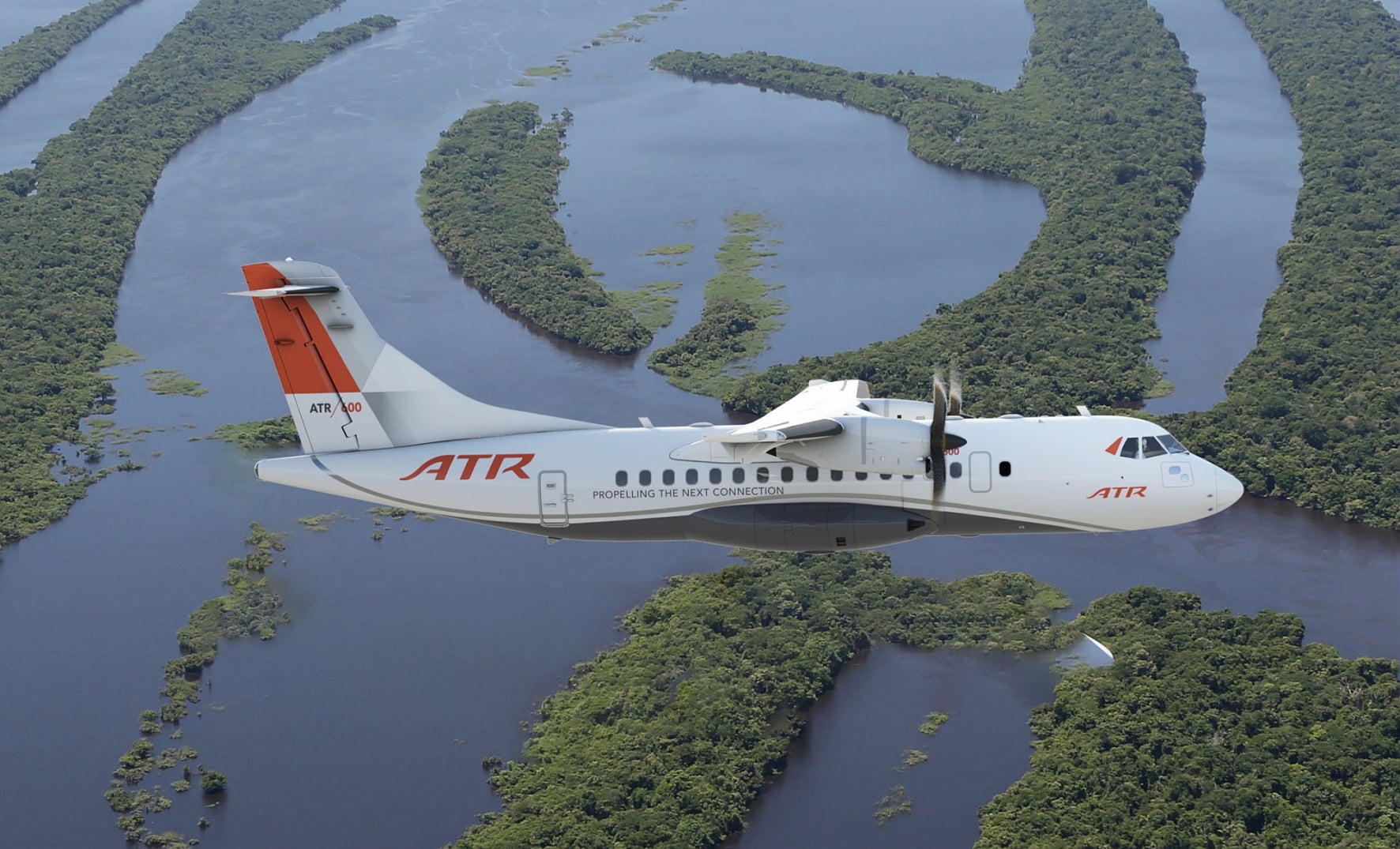
The ATR 42 is a turboprop for short and medium-haul flights. In its cargo version, it has a 1.56 m high and 1.30 m wide door. Its large cargo compartment, nearly 14 m long, 1.85 m high and 2.17 m wide, allows it to carry pallets of cargo up to 5.58 tons.
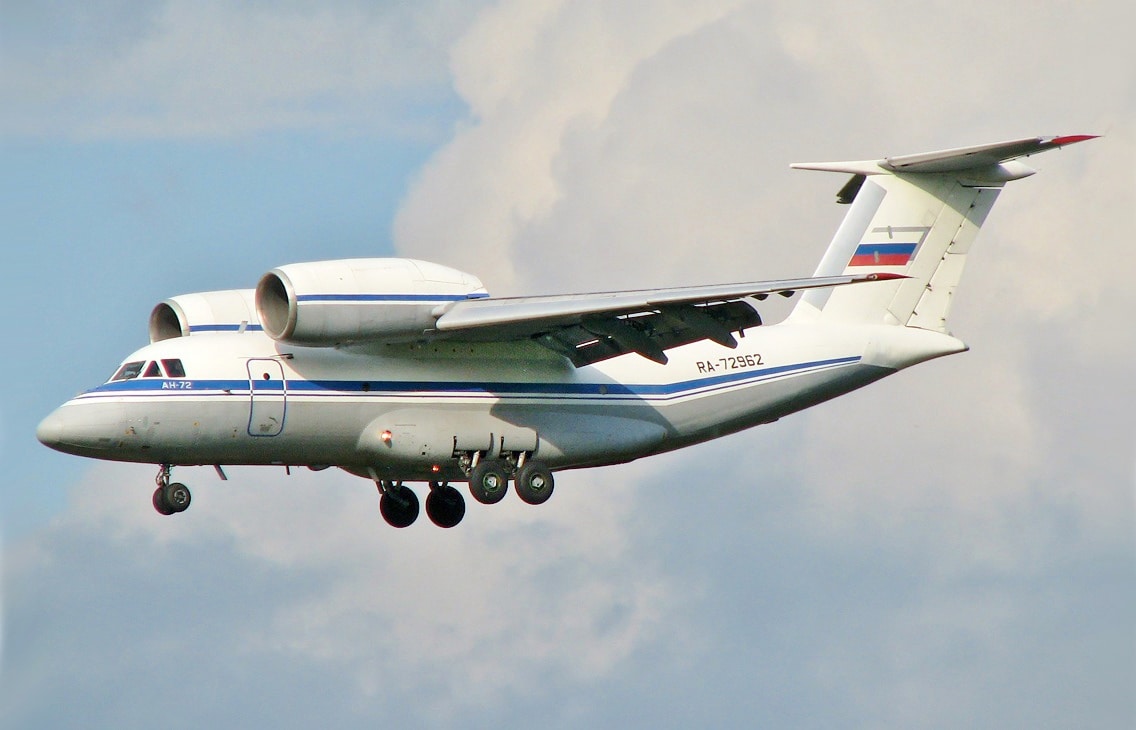
The Antonov An-72 is a cargo plane of Soviet origin. It can contain 7.5 tons of cargo in its hold with the following dimensions: 2.2m high and 2.5m wide. It is one of the first models of the aircraft manufacturer Antonov. Other more impressive models followed such as the Antonov 124 and 225.
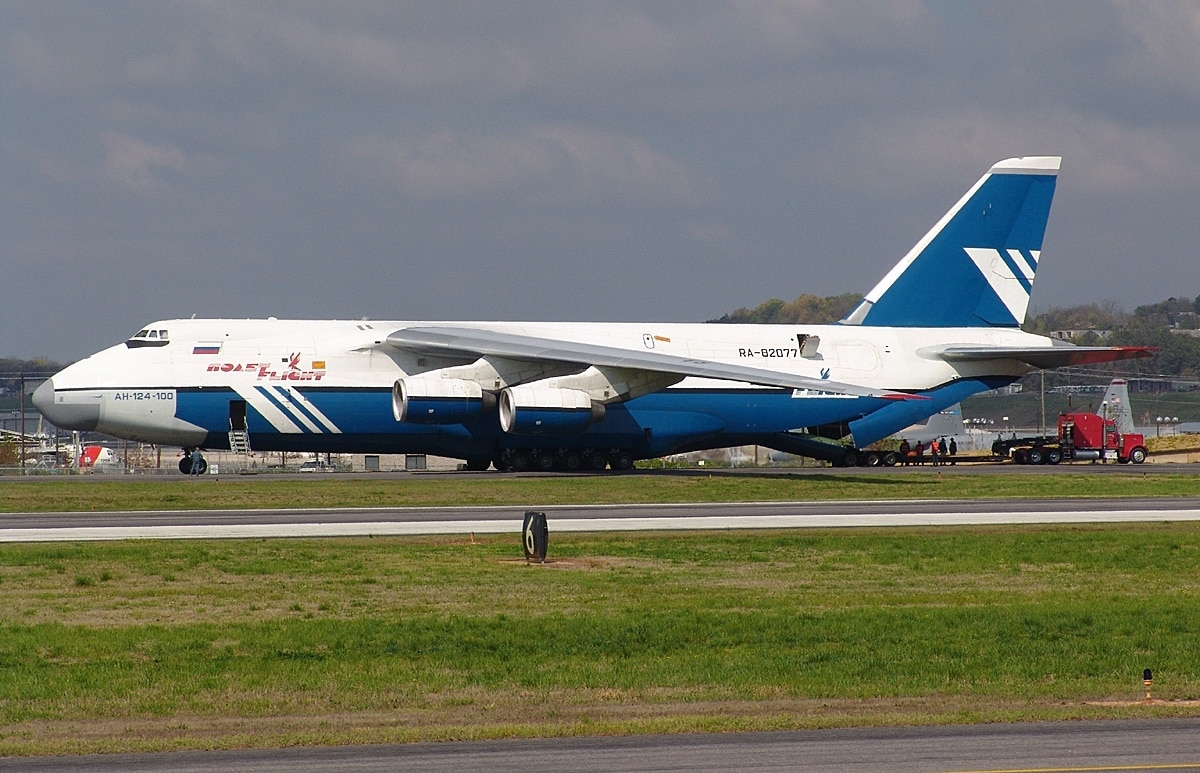
The Antonov 124 is the second largest aircraft in the world. It has two large ramps, one of which is at the front thanks to a nose that can rise. Its very large cargo hold is 36.48 m long, 4.40 m high and 6.40 m wide. The plane can transport up to 12 tons of freight. Thus, the AN-124 can carry small passenger planes, helicopters, vehicles, large industrial parts or abundant goods.
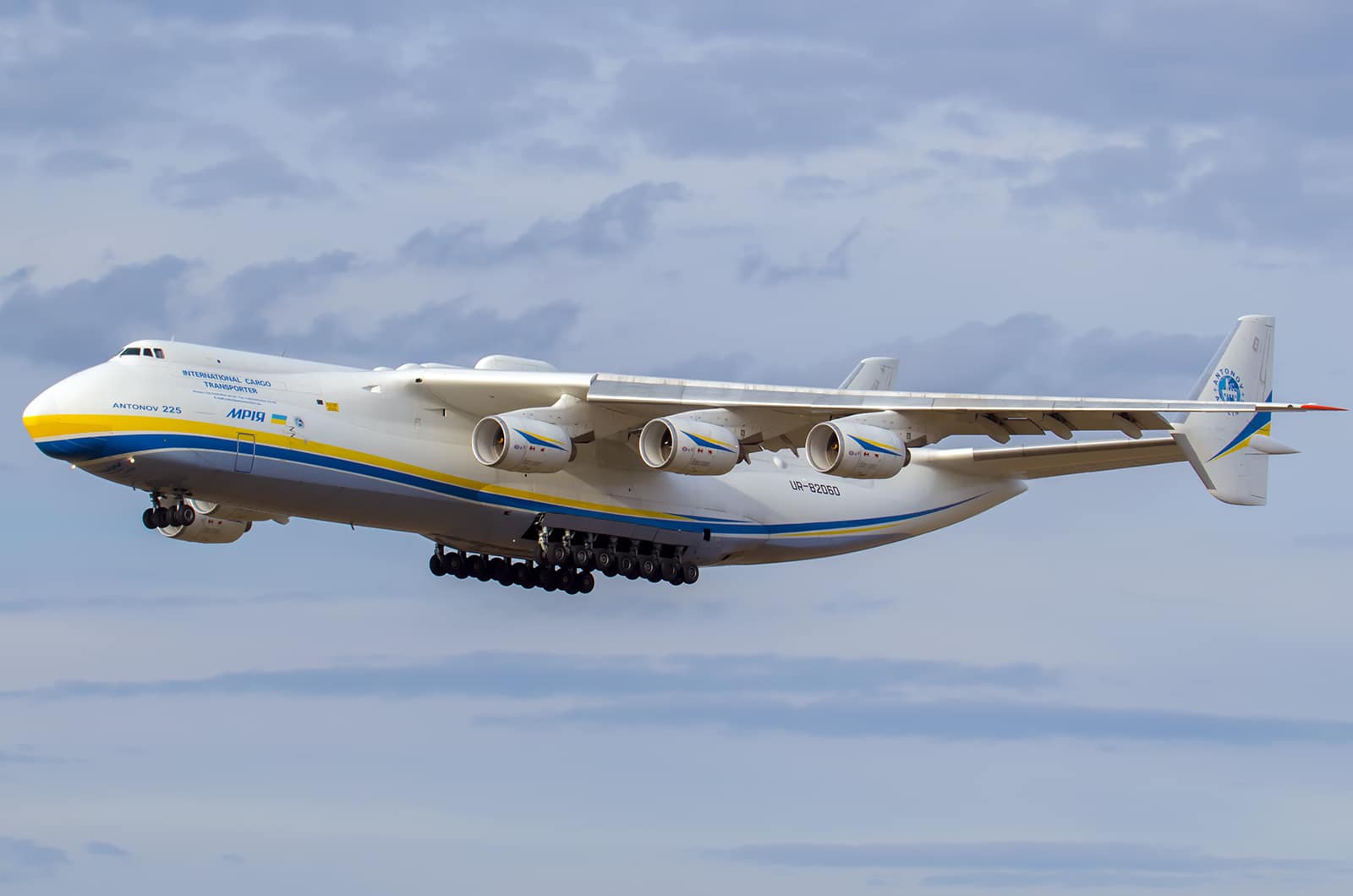
Although the Antonov 225 has been damaged and is awaiting repair, AEROAFFAIRES was able to use it for large air freight missions. The AN 225 was the largest aircraft in the world. It could hold no less than 250 tons of cargo in its hold. Even a jumbo jet with spare parts can be transported by the AN 225. The dimensions of this giant of the air are impressive, 88 meters of wingspan for 84 meters long.
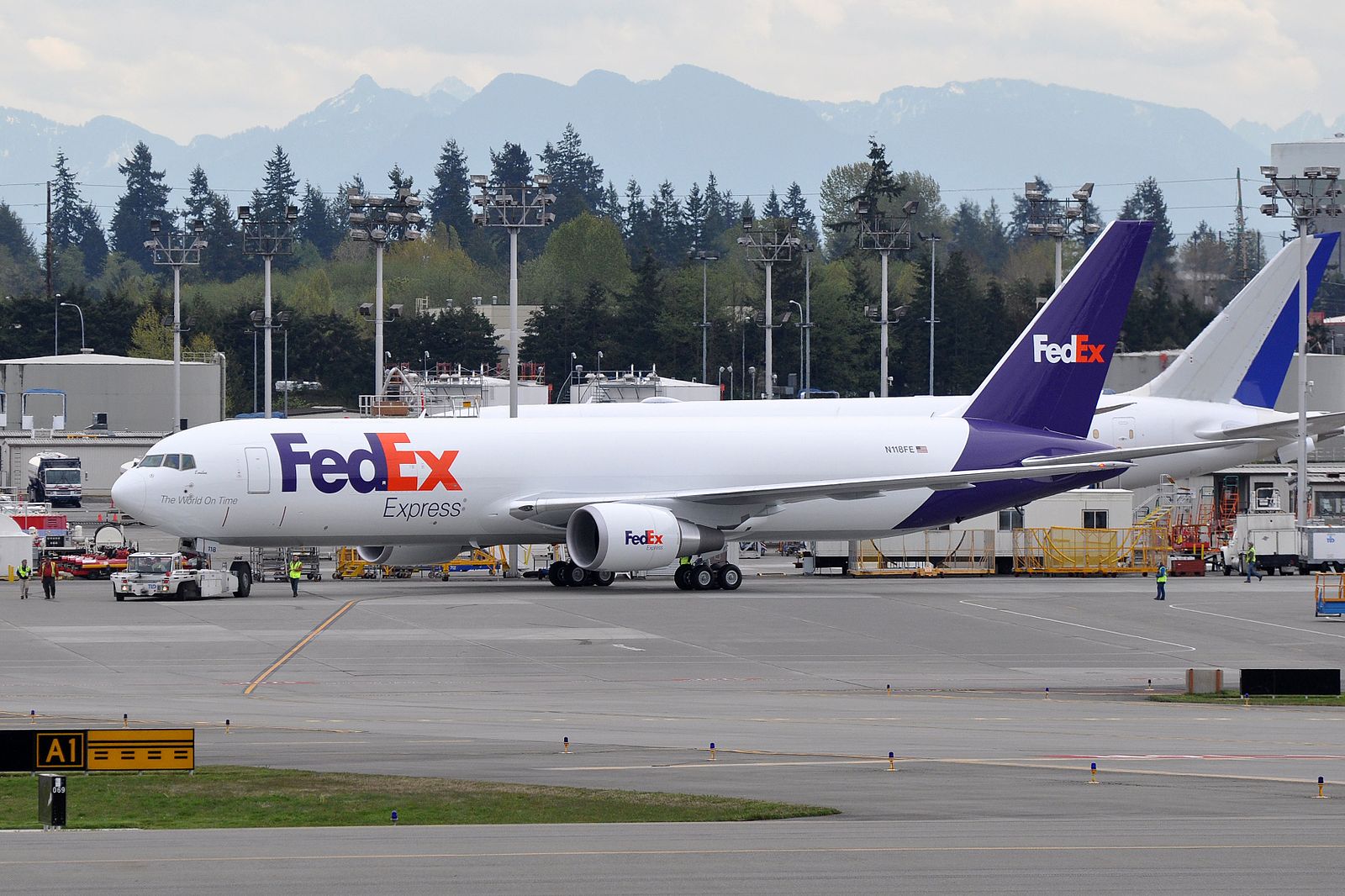
The Boeing 767-300F is a freighter that entered service in 1995. It is a version of the Boeing 767 airliner configured exclusively for air cargo flights. With a range of 6000 km, it can carry a large load of 55 tons of cargo. This can be, for example, 24 pallets of 2 X 3 meters, and 30 containers. Moreover, it has an air-conditioning system that allows it to transport animals for example or perishable good
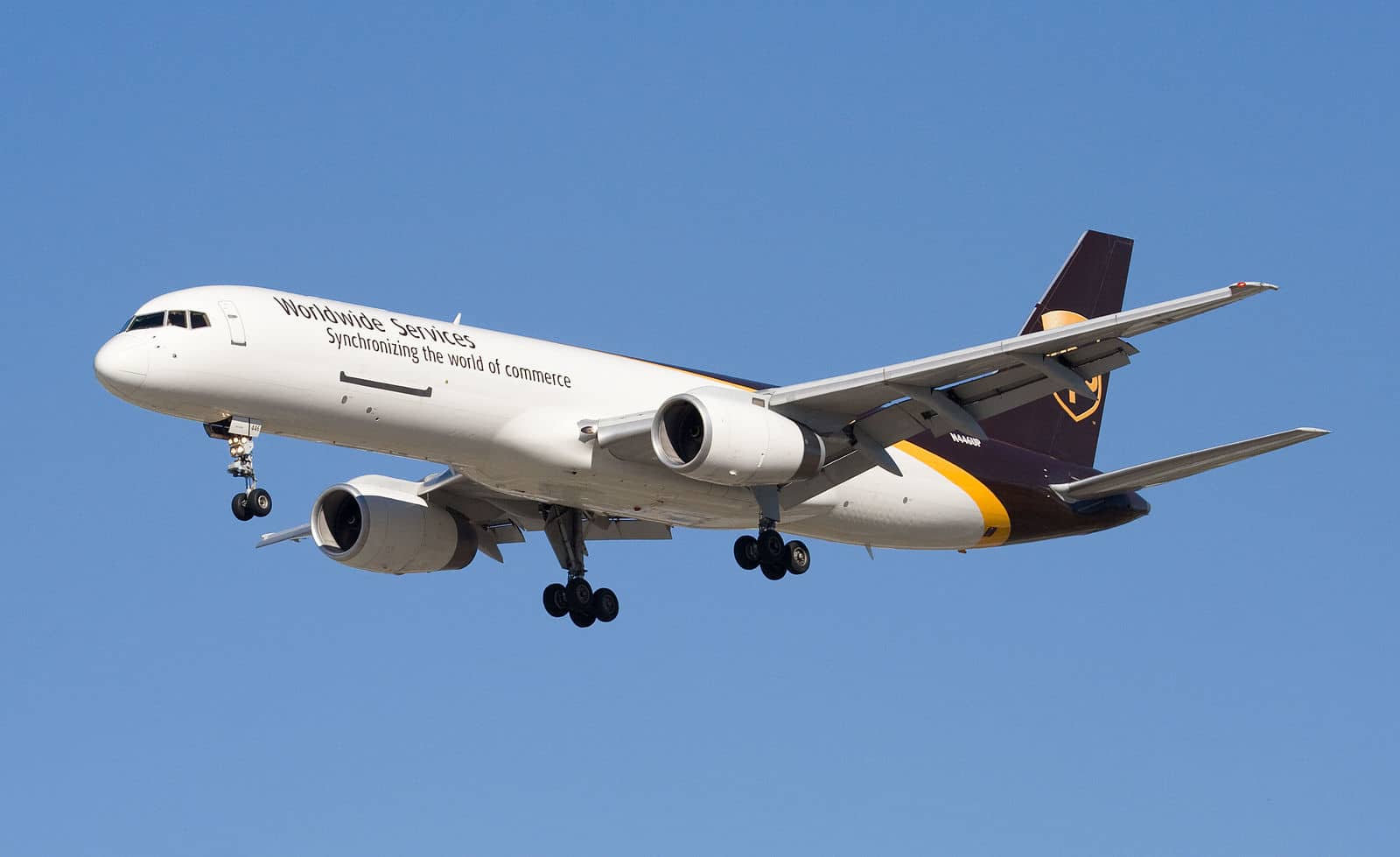
The Boeing 757-200PF (PF stands for “Package Freight”) is a cargo aircraft that entered service in 1987. It is the cargo version of the Boeing 757 aircraft. The cargo plane has 2 holds with a capacity of 50 cubic meters each. It can transport a load of 40 tons on average distances (5900 km of autonomy).
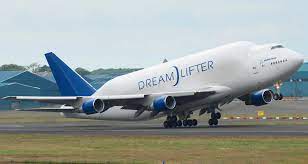
The Boeing 747-400 Large Cargo Freighter (LCF), nicknamed Boeing DREAMLIFTER, is a derivative of the Boeing 747-400 airliner. It was introduced in 2006. It has a very large cargo hold of 1800 cubic meters and can carry 150 tons of cargo over a distance of 7800 km. It is therefore ideal for transporting bulky parts.
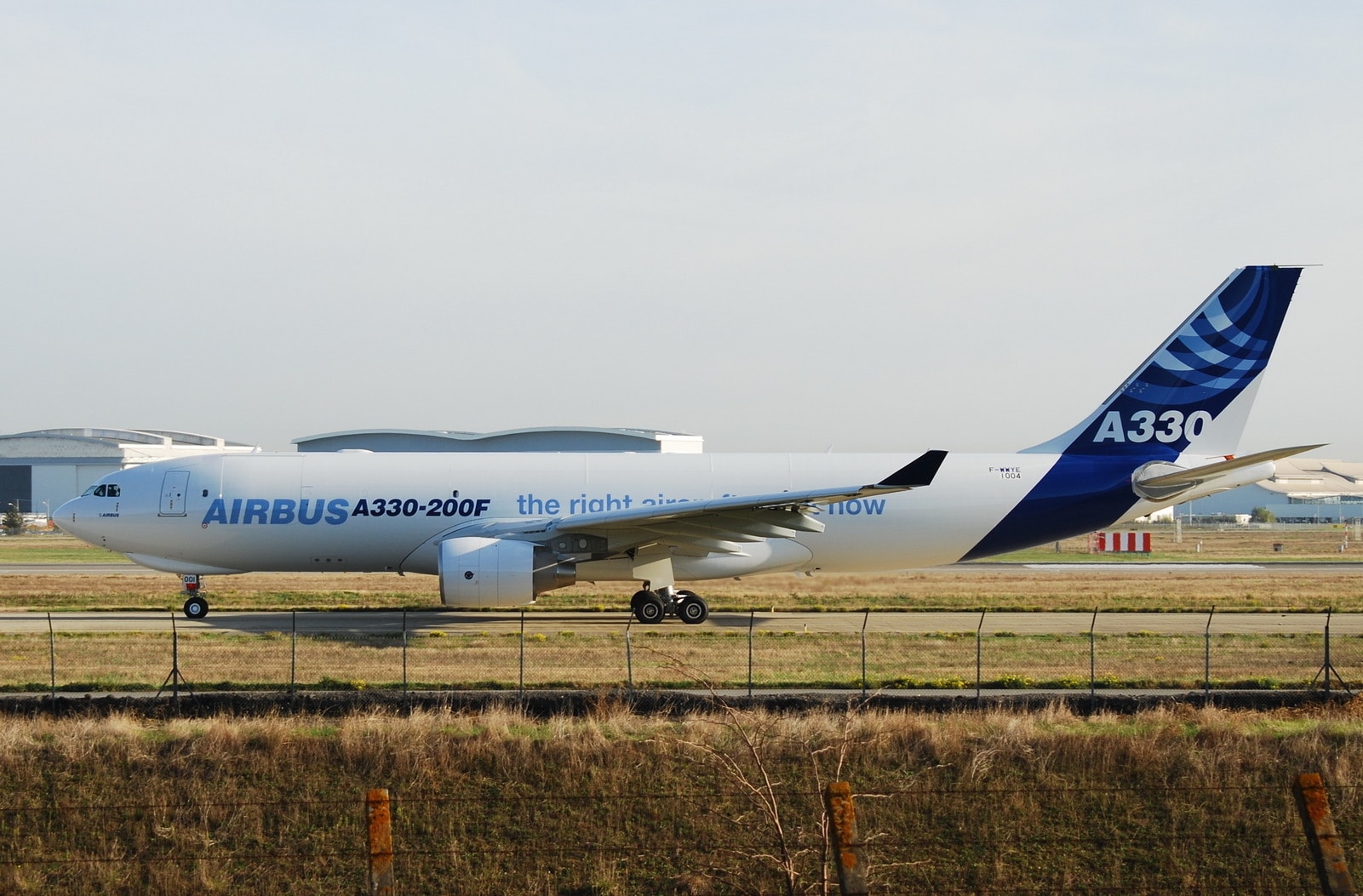
The Airbus A330-200F was put into service in 2010. This cargo aircraft can transport 65 tons of goods over 7400 km. Its capacity can reach 70 tons by reducing its range a little. It is ideal for transporting containers and pallets in its hold. It has a capacity 30% higher than its predecessor, the A300, and has more recent innovations to limit its CO2 emissions.
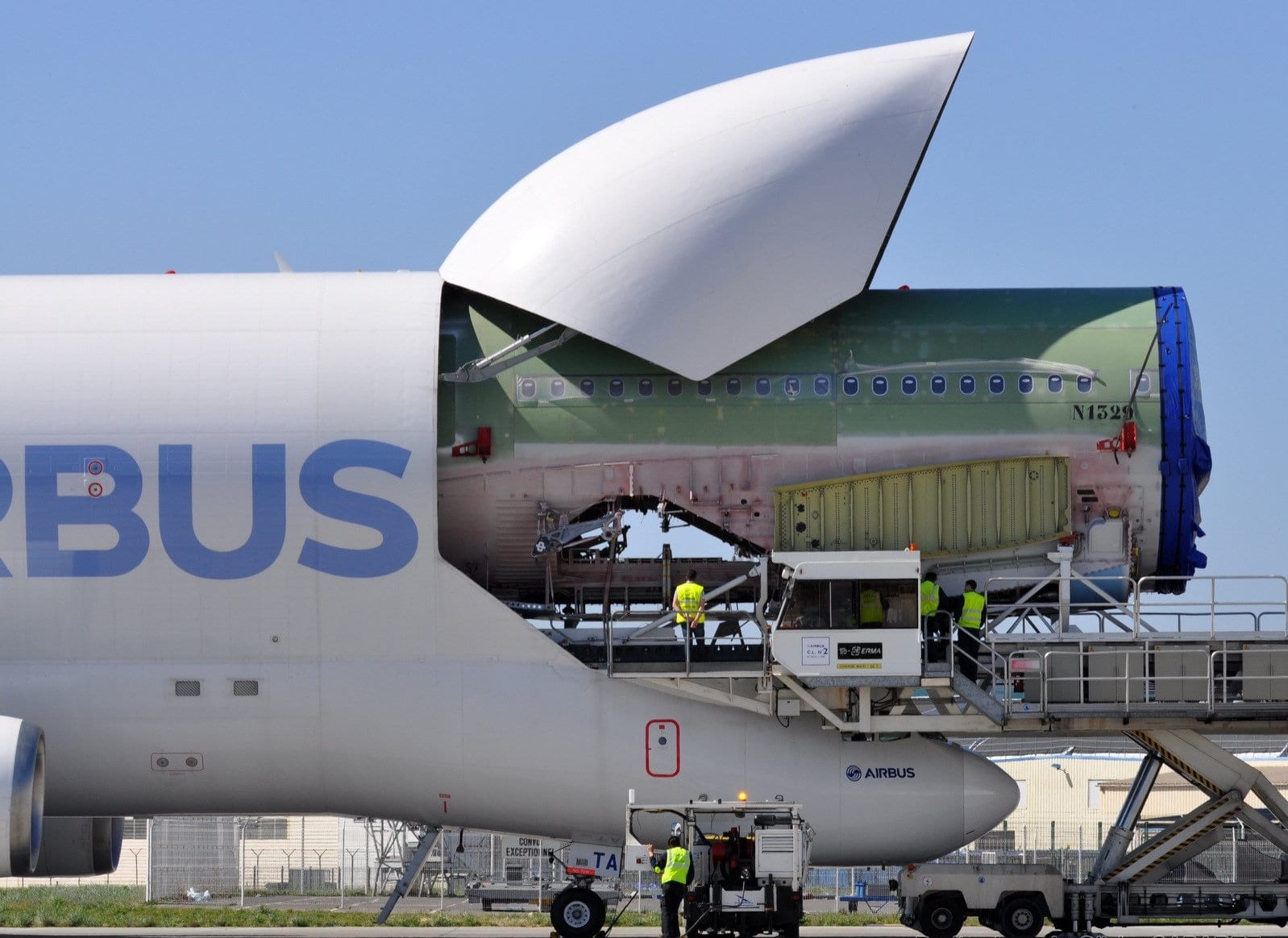
The Airbus A300-600ST (Super Transporter) is a cargo aircraft nicknamed the Beluga because of its sea mammal-like appearance. It flew its first cargo missions in 1995. Its transport capacity is 47 tons over an average distance of 5000 km. Its original design was intended to transport spare parts for other aircraft of the aircraft manufacturer Airbus.

The Écureuil AS350 is a single turbine utility helicopter developed by Eurocopter. Its cabin allows it to carry 3.30 m of cargo up to 1 ton of weight.
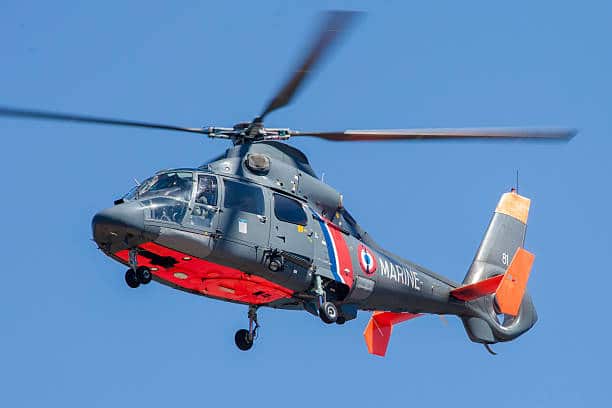
The Dauphin AS365 is a twin-engine utility helicopter designed by Airbus Helicopters. It has a range of 1000 km and can carry up to 1.2 tons of cargo.
How much does air freight cost?
The rate for air freight, also called the freight rate, depends on many factors:
- The weight and size of cargo
- The type of aircraft required
- Departure and destination airports
- Type of goods carried
Therefore, air freight cost estimates can only be made on a case-by-case basis.
Choosing AEROAFFAIRES for passenger transport
Our private and corporate aircraft rental services are also available at phone US +1 845-622-4885 | UK +44 20 4586 0762 or by email at cargo@aeroaffaires.com.
You can also fill out our online quote.

Read also our article on air freight to Africa.
What is air freight?
Air freight has a simple definition: it is the transportation of goods by air. Some airlines offer this service and charter special planes to transport goods from one airport to another. It is an alternative to road and sea transport. The global air freight network is very dynamic. Chartering a plane for cargo transportation offers the opportunity to ship products internationally. It is possible to send goods anywhere in the world: air freight to Africa, Asia, America…
The air freight chain is composed of several actors whose missions ensure the logistics and the transport of goods to their final destination:
To organize a transport of goods, one can call upon an airline or air brokers, also called charterers.
Airlines may subcontract this task to freight forwarders. These aviation professionals offer transportation solutions tailored to the client’s needs.
The freight agent is the agent of the shipper. Approved by the International Air Transport Association, it is the person responsible for air freight and organizes the logistics and transportation of the goods to their destination.
The freight forwarder organizes the freight and has an obligation of result.
What are the advantages of air freight?
Air freight is a type of transport that is particularly suitable for the shipment of very bulky, precious, fragile or dangerous products that need to be placed under high surveillance. Of course, the importer is required to go through customs and must make a scrupulous description of the goods transported.
Air freight is more expensive than other transport services but has the advantage of being faster. It is preferred for long distance shipments. Chartering an airplane offers the possibility of a fast trip, perfectly calibrated for all urgent deliveries. The goods are stored in standardized pallets or secure containers and are thus quickly loaded and unloaded.
It is a solution for the transport of perishable foodstuffs with a limited shelf life. Freight is also suitable for fragile products, such as medical machines or electronic equipment. Chartering an aircraft may also be the only option when transporting dangerous goods, which are subject to strict regulations. Finally, when valuable goods such as jewelry, art (Art Logistics) or valuable documents need to be transported, chartering an aircraft is probably the most reliable and secure means of transportation.
How to calculate the cost of air freight?
Air freight costs and rates depend on several factors.
First of all, air freight rates vary according to the volume of cargo transported and the type of goods. Of course, the more pallets and cargo containers that need to be transported to the warehouse, the higher the air freight cost.
Secondly, the price of freight depends on the type of aircraft chosen. It can be cargo planes, passenger airliners or combi-aircraft.
Finally, there is also the cost of storing the goods, which will depend on the airports chosen at the departure and destination.
What type of aircraft for air freight?
There are many aircraft that can be chartered for air freight. Depending on your needs, you can choose an aircraft with a larger or smaller capacity.
The holds of airliners are sometimes used for air freight. Indeed, they are underused on some flights. Their large capacity offers the possibility to transport goods. This is a solution that can also be used for emergency cargo transport. For example, during the Covid-19 pandemic, some commercial flights carry medical supplies to meet an urgent demand.
Some airlines also have a fleet of aircraft dedicated to air cargo. For example, business jets have a cabin and cargo hold that can be optimized to carry cargo. One can choose to charter a private jet for short, medium and long haul flights. These can be turboprop aircraft, single-engine propeller aircraft or helicopters specially designed for cargo.





